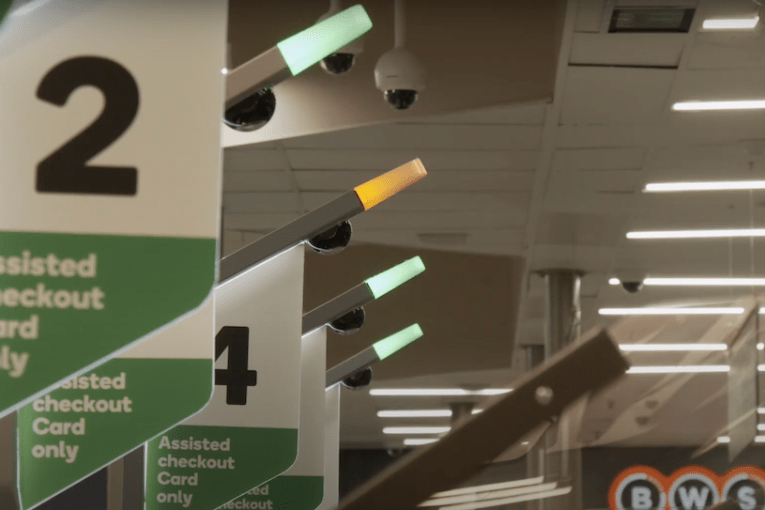‘Damning’: Why school banking programs ‘failed’ ASIC’s financial literacy test


Major banks were unable to prove their school banking programs improved children's savings habits, according to ASIC. Photo: TND
A damning report by the corporate regulator, ASIC, has found major banks were unable to substantiate a link between school banking programs and improved savings habits among schoolchildren.
The review also revealed providers “fail” to adequately disclose a key objective of their schemes is to recruit future customers.
ASIC’s long-awaited report – which grilled financial institutions over the adequacy of their school banking products since October 2018 – found the programs failed to live up to claims they improved financial literacy among young people.
Instead, ASIC found the programs targeted youngsters with “sophisticated advertising and marketing tactics” that encourage them to sign up to high-interest products, such as credit cards, once they hit adulthood.
Despite those findings, ASIC found 3928 Australian primary schools (roughly 63 per cent of all schools) and 180,000 students (8 per cent of the primary school cohort) participate in the voluntary programs.
According to ASIC’s research, schools were encouraged by banks to sign up more students and would receive kickbacks in return.
- Related – How to teach your kids about money
The commissions were based on participation rates, the number of new accounts opened, and the amounts deposited through the school.
Commonwealth Bank, which has a 97 per cent market share through its Dollarmites program, paid $5,877,488 to primary schools and parents and citizens’ (P&C) associations from 2017-18 to 2019-20.
The remaining nine providers paid $70,791 over that same period.
Parents surveyed by ASIC also appeared to be ardent supporters of the programs, which were first introduced in the 1880s when banks were publicly-owned institutions.
Although 68 per cent of those surveyed told ASIC they were concerned over how banks marketed products to their children, 61 per cent said they would be “furious” if their child’s school rescinded their program.
Consumer group CHOICE, which has previously called for primary schools to ditch CBA’s Dollarmites program, welcomed the financial regulator’s assessment.
CHOICE CEO Alan Kirkland said school banking programs obscured the benefits of shopping around for the best savings rates on offer.
“ASIC has painted a damning picture of school banking programs, making it clear that a key objective of programs is to recruit customers at a young age,” Mr Kirkland said.
“Most importantly, ASIC has warned school communities not to rely on claims that these programs help kids to develop good savings habits, describing these as ‘unsubstantiated’.
Put simply: These programs exist to capture lifelong customers … [and] encouraging them to sign up to one of the big four banks at a young age is just about the worst thing you could do.”
Comparison website RateCity recently analysed how the programs foster complacency and discovered one-third of adults who used the programs during their school years remained with the same institution.
RateCity research director Sally Tindall said the school banking system’s convenience was an incentive for parents to no longer teach their children about the benefits of switching providers.
“If McDonald’s came into schools to teach kids about healthy eating there would be an outcry,” Ms Tindall said.
“Learning about money is a life skill but right now it’s buried in the curriculum. It should be a stand-alone subject.”
Communicated to governments ahead of their public release, the regulator’s findings have already inspired action from state governments and financial institutions.
The Victorian government announced a ban on the programs in public schools from 2021, and committed to offering more classes to educate children on financial literacy in the state’s curriculum.
That prompted people to call on other jurisdictions to follow suit.
Queensland indicated to ASIC, however, that it would continue contracting CBA to offer the state’s school banking programs.
And Bendigo Bank, IMB Bank and South West Credit abandoned their programs earlier this year after ASIC released their preliminary findings.
Commonwealth Bank says it has tweaked its program in response to ASIC’s findings.
“While we acknowledge some of the findings, we do not believe they are entirely consistent with international research or our own, and we do not agree with the overall assessment of school banking programs,” it said in a statement.
“As noted in ASIC’s report released today, school banking programs are very highly regarded by participating schools, students and parents.
“There is also considerable evidence that children who have a bank account and participate in our School Banking program are more effective savers and attain higher financial literacy than other children of the same age.”










